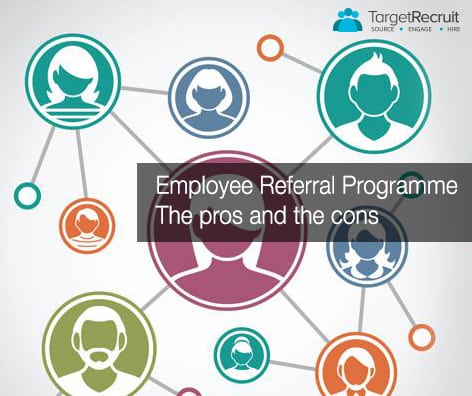We’re often told that the best job market is the hidden job market of personal referrals. There’s always someone who knows someone who is applying for the same job as you, so they’ll probably get preferential treatment.
Candidates are often wary of using agencies and sending out resumes all over the place, because they assume that they’re not close enough to the hiring department to be considered.
But networking has been shown to provide additional benefits to employers and staffing agencies. Employees that are hired through existing relationships are more likely to be loyal to the company and to stay in the job.
As a result employee referral programs have gained popularity. Some are well structured and offer benefits or bonuses to employees who bring in talent.
Others are as simple as asking employees to consider if they have friends who might be good for an open job. There’s a nice balance to be reached for a structured employee referral program.
It’s important to understand the risks involved:
Nepotism and Preferential Treatment
Other employees may be threatened by an employee referral program. Current employees who are hoping to be moved up into a better position may feel that a new employee who was hired as a result of another employee’s referral maybe offered the position and they are being unfairly overlooked.
And there’s a better chance that protected groups will be underrepresented if employee referrals are relied on too much.
Cliques and Idea Stagnation
In addition, when people who know one another outside the workplace find themselves working together, their likely to form groups or alliances that can make other employees feel like they’re on the outside.
The ‘ganging-up’ of groups within the company can lead to a poor kind of decision making. Individuals who think differently from the rest of the group will not be given as much weight when they offer new ideas. And new ideas and fresh thinking will not be as common within the company.
Disillusionment
Companies that are over-reliant on an employee referral program can also find that their employees feel they’re being offered something that’s unattainable.
Great benefits or bonuses that never materialize will cause employees to be discontent due to the poor structure of the employee referral program.
Pros Still Outweigh Cons
Even though these are serious considerations, there are still many benefits of an employee referral program, as long as it’s realistic and well thought out.
Passive candidates who don’t cost the company a lot in fees are a boon, and they’re more likely to stick it out and feel welcomed onto the team. Plus if you’re giving bonuses to current employees for their referrals, employee morale will improve with successful hires.
The balance of finding great candidates through current employees is possible to strike, especially when you’re aware of the potential risks involved. As long as your employee referral program is clear and benefits both the company and the individual employees, you can find ways to hire the right people.


